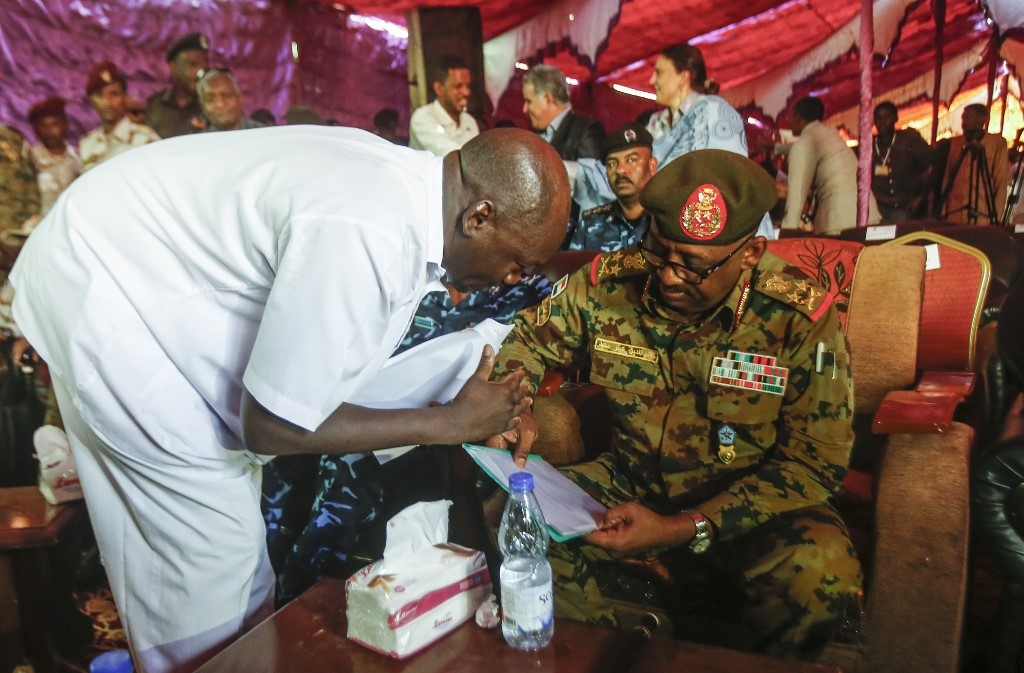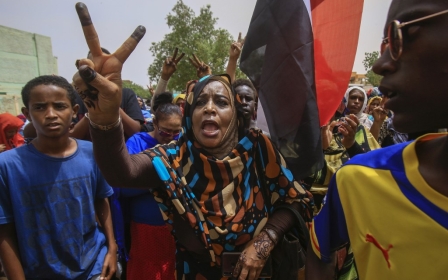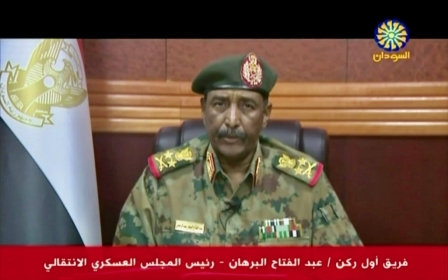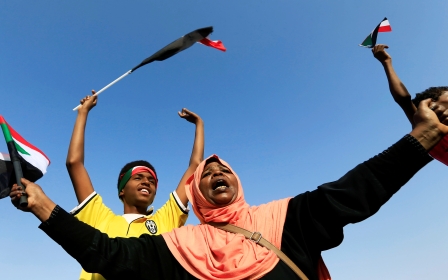Sudan generals claim coup attempt foiled as power-sharing deal delayed

Sudan's military council claimed on Thursday that it had foiled an attempted coup, after delaying again the signing of an anticipated power-sharing agreement.
A week after the agreement was announced, the signing of the controversial deal was delayed for the second time in two days.
A statement from the African Union envoy who had mediated the agreement said the sides will meet again on Saturday, to study the agreement.
A top general announced on state television on Thursday that 12 officers and four soldiers had been arrested for a coup attempt, which the council says is the third since the overthrow of Omar al-Bashir three months ago.
New MEE newsletter: Jerusalem Dispatch
Sign up to get the latest insights and analysis on Israel-Palestine, alongside Turkey Unpacked and other MEE newsletters
"Officers and soldiers from the army and National Intelligence and Security Service, some of them retired, were trying to carry out a coup," General Jamal Omar of the ruling military council said in a statement broadcast live on state television.
"The regular forces were able to foil the attempt," he said, but did not say when the attempt was made.
Omar said of the 12 officers arrested, five of them were retired, and that security forces were looking for the mastermind of the attempted coup.
"This is an attempt to block the agreement which has been reached by the Transitional Military Council and the Alliance for Freedom and Change that aims to open the road for Sudanese people to achieve their demands," Omar said.
The military council also claimed in June that it had arrested dozens of military officers for an alleged coup attempt.
A security source told Middle East Eye, however, that the arrested officers were in fact being punished for refusing to take part in a violent crackdown that killed more than 100 protesters on 3 June.
The announcement late on Thursday came as the generals and protest leaders went through the details of the agreement at a luxury hotel in Khartoum.
Protesters have been demanding a leading civilian role during a transition to full civilian rule after long-time ruler President Omar al-Bashir was deposed in April following months of protests.
The two sides held intense discussions through the night into the early hours of Friday and later agreed to continue on Saturday.
The landmark agreement that aims to form a new joint transitional civilian-military ruling body was reached last week after mediation by African Union and Ethiopian envoys.
Sudan has been rocked by a political crisis since protests first erupted against Bashir's rule in December.
The protests finally led to the army ousting him on 11 April, but the generals who seized power have so far resisted demonstrators' demands to hand it over to a civilian administration.
Tension had further soared between the two sides after a brutal raid on a longstanding protest camp outside army headquarters in the capital Khartoum that killed scores of demonstrators and wounded hundreds on 3 June. Numerous rapes by military forces were also reported.
The raid came after talks between the generals and protest leaders collapsed in May over who should lead the new governing body - a civilian or soldier.
Intense mediation by African Union and Ethiopian mediators finally led to the agreement reached on the new joint governing body on 5 July.
The agreement proposes a little more than a three-year transition period, with the presidency of the new ruling body to be held by the military for the first 21 months and a civilian for the remaining 18 months.
The ruling body would be comprised of six civilians, including five from the protest movement, and five from the military.
Middle East Eye delivers independent and unrivalled coverage and analysis of the Middle East, North Africa and beyond. To learn more about republishing this content and the associated fees, please fill out this form. More about MEE can be found here.




